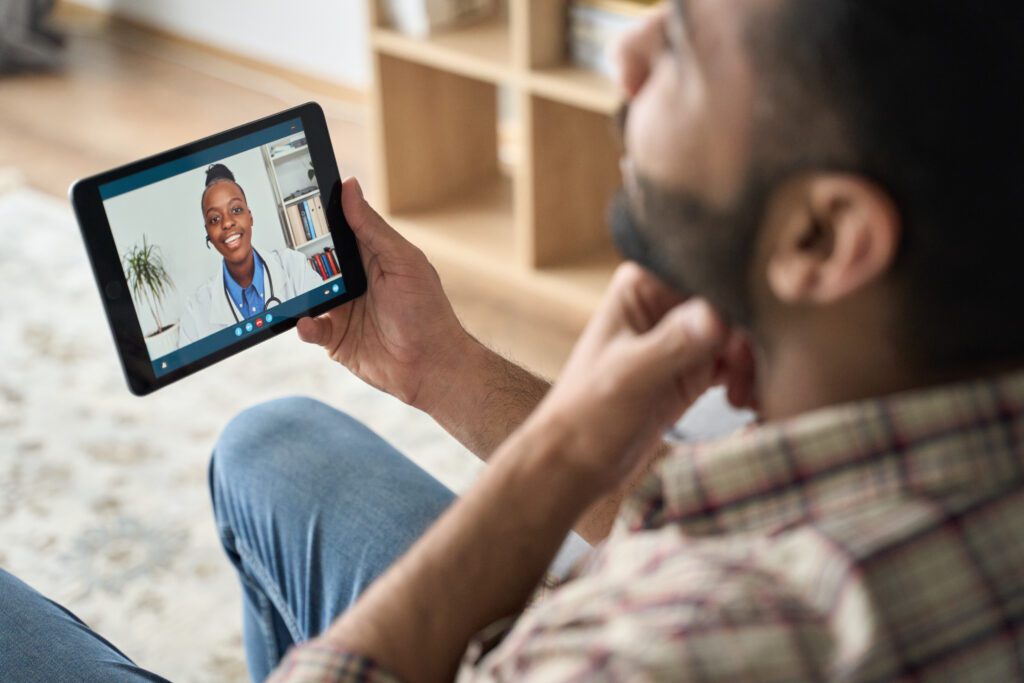In the ever-evolving landscape of healthcare, technology continues to play a pivotal role in transforming the way medical professionals deliver patient care, collaborate, and stay connected. One of the most significant advancements in recent years is the widespread adoption of video meetings. This powerful tool has proven indispensable for various medical professionals, offering a range of benefits that contribute to enhanced patient outcomes, improved communication, and streamlined healthcare processes.
Bridging Gaps in Telehealth
The rise of telehealth has been a game-changer in healthcare accessibility, and video meetings are at its forefront. Medical professionals, including doctors, nurses, and specialists, can connect with patients virtually, breaking geographical barriers. Patients in remote or underserved areas now have access to expert medical advice without the need for extensive travel. This not only improves patient satisfaction but also ensures timely interventions and preventive care.
Enhancing Collaborative Care
In a complex healthcare system, collaborative care is most important. Video meetings provide a platform for interdisciplinary collaboration among healthcare professionals. Doctors can consult with specialists, discuss complex cases, and share insights seamlessly, leading to more comprehensive and patient-centric treatment plans. This level of collaboration is particularly valuable in tackling chronic conditions that require a multidisciplinary approach.
Remote Consultations and Follow-ups
Video meetings have become instrumental in facilitating remote consultations and follow-ups, offering patients and medical professionals convenience. Routine check-ups, postoperative follow-ups, and medication management can now be conducted virtually, reducing the burden on healthcare facilities and minimizing the risk of exposure to contagious diseases. This is especially crucial during global health crises such as COVID-19 when minimizing in-person interactions was essential there was a 1500% increase in the use of telehealth reported during the pandemic.
Medical Education and Training in Healthcare
The importance of ongoing medical education cannot be overstated, and video meetings have become an integral tool in this regard. Continuing medical education (CME) sessions, virtual conferences, and training programs can be conducted remotely, allowing medical professionals to stay updated on the latest advancements, share research findings, and enhance their skills. This democratization of education contributes to a more knowledgeable and skilled healthcare workforce.
Collaborative Research and Case Discussions
Medical research often involves collaboration between researchers, clinicians, and specialists. Video meetings facilitate seamless communication, enabling professionals to discuss research findings, share insights, and collaborate on groundbreaking studies. This level of connectivity accelerates the pace of medical research and contributes to the development of innovative treatments and therapies.
Telemedicine for Mental Healthcare
The integration of video meetings in mental health services has been particularly transformative. Mental health professionals can conduct therapy sessions, offer counseling, and provide crucial support to patients from the comfort of their homes. This not only increases accessibility to mental health services but also reduces the stigma associated with seeking help, as individuals can engage in therapy discreetly.
Efficient Team Communication in Hospitals
Within hospital settings, effective communication is critical for patient safety and the overall functioning of healthcare teams. Video meetings streamline communication among doctors, nurses, and administrative staff. Daily rounds, case discussions, and administrative meetings can be conducted virtually, saving time and ensuring that everyone is on the same page regarding patient care plans and hospital operations.
Maintaining Continuity of Care
For patients with chronic conditions or those undergoing long-term treatments, maintaining continuity of care is paramount. Video meetings enable medical professionals to stay connected with patients, monitor their progress, and make necessary adjustments to treatment plans. This continuous engagement contributes to better health outcomes and patient satisfaction.
Patient Education and Empowerment
Video meetings also serve as a valuable tool for patient education. Medical professionals can use virtual platforms to educate patients about their conditions, treatment options, and preventive measures. This not only enhances patient understanding but also empowers individuals to actively participate in their healthcare decisions, leading to better adherence to treatment plans and improved overall health.
Overcoming Time and Resource Constraints
In a healthcare system often constrained by time and resources, video meetings offer a solution to some of these challenges. Medical professionals can conduct meetings efficiently without the need for extensive travel or disruptions to their busy schedules. This time-saving aspect allows professionals to focus more on patient care, research, and education, ultimately improving the quality of healthcare services.
Related Link: 6 Ways Modern Healthcare Phone Systems Enhance Patient Care
The integration of video meetings into the healthcare landscape has proven to be a transformative force, benefiting medical professionals and patients alike. From telehealth consultations to collaborative research, the applications are diverse and impactful. As technology continues to advance, healthcare institutions and professionals must embrace and maximize the potential of video meetings to provide high-quality, accessible, and patient-centered care in the modern era of medicine.



